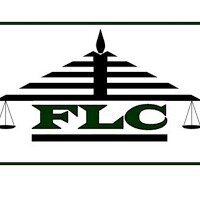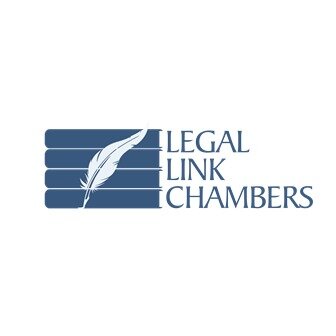Best Restructuring & Insolvency Lawyers in Rwanda
Share your needs with us, get contacted by law firms.
Free. Takes 2 min.
Or refine your search by selecting a city:
List of the best lawyers in Rwanda
About Restructuring & Insolvency Law in Rwanda
Restructuring and insolvency law in Rwanda refers to the legal processes that help businesses or individuals facing severe financial difficulties reorganize their debts or, if that is not possible, go through an orderly process of asset liquidation. The primary goal of these laws is to facilitate the fair treatment of creditors, preserve as much value as possible, and either assist businesses to recover or ensure a transparent dissolution of assets. Rwanda has made significant efforts to modernize its legal framework, offering procedures for bankruptcy, judicial administration, and debt restructuring that are in line with international best practices.
Why You May Need a Lawyer
There are various situations where you may need legal assistance with restructuring and insolvency matters in Rwanda. Typical scenarios include:
- When your business is experiencing difficulties meeting financial obligations and you need to explore debt restructuring or reorganization options.
- If you are a creditor and wish to understand your rights when a debtor is struggling or has defaulted on payments.
- When you need assistance navigating insolvency proceedings, including filing for bankruptcy or negotiating settlements with creditors.
- If you are undergoing a merger or acquisition and need to assess financial risks related to insolvency or distressed assets.
- When looking to protect your assets during periods of financial uncertainty.
A lawyer experienced in Rwandan restructuring and insolvency law can guide you through the complex legal procedures, represent your interests in court, and help you make informed decisions.
Local Laws Overview
The main framework governing restructuring and insolvency in Rwanda is set out in the Law No. 30/2021 of 13/10/2021 on insolvency and restructuring. This law provides guidelines for insolvency proceedings for both individuals and companies, outlining both reorganization (rescue) and liquidation (winding-up) procedures.
Key elements of local laws include:
- Reorganization proceedings: Allow a financially troubled business to restructure its debts and continue operations under court supervision.
- Bankruptcy proceedings: Apply when a business or individual is unable to pay debts and involves the liquidation of assets to settle with creditors.
- Protection of creditors: Creditors have rights to submit claims, attend meetings, and challenge unfair preferences or transactions before insolvency.
- Debtor’s obligations: Debtors are required to act in good faith, cooperate with administrators and courts, and disclose all relevant information about their financial situation.
- Role of courts: Courts are central to overseeing proceedings, granting moratoriums, and approving reorganization plans or asset distributions.
- Cross-border insolvency: The law covers cases where foreign creditors are involved or where assets or operations cross Rwandan borders.
Knowing the details of these procedures is crucial, as failure to comply can result in loss of rights or even criminal liability.
Frequently Asked Questions
What is the difference between restructuring and insolvency?
Restructuring is the process of reorganizing a debtor’s obligations to return to viability, often involving renegotiation of debts. Insolvency, on the other hand, is when a person or business cannot pay their debts as they fall due, which may result in liquidation.
Who can initiate insolvency proceedings in Rwanda?
Both debtors and creditors can initiate insolvency proceedings. In some situations, the court or a regulatory authority can also trigger proceedings if public interest or legal requirements are at stake.
Can I keep my business running during restructuring?
Yes, in many cases businesses can continue operations while restructuring, under the supervision of the court or an insolvency administrator.
What happens to employees if a company enters insolvency?
Employees’ rights are protected by law. Their claims, especially unpaid wages and benefits, often receive priority in insolvency proceedings.
What debts are included in insolvency proceedings?
Generally, all unsecured and secured debts are included. Some debts, such as certain taxes or penalties, may have special status.
Do I need to notify anyone if I file for insolvency?
Yes. Requirements include notifying creditors, employees, and filing notice with the Rwandan courts and relevant regulators.
Can creditors challenge transactions made before insolvency?
Yes, creditors may challenge transactions that unfairly benefit others or dissipate assets before insolvency, especially if these transactions occurred within a specified ‘suspect period’ before filing.
Can foreign creditors participate in Rwandan insolvency proceedings?
Yes. Rwandan law allows foreign creditors to submit claims and participate in proceedings. Cross-border provisions may apply for asset tracing or coordination.
What are my options if a debtor defaults but is not insolvent?
You may pursue normal debt recovery procedures, including court action, negotiation, or mediation. Insolvency is typically a last resort.
How long do restructuring and insolvency proceedings take?
The duration varies based on the complexity of the case, the type of proceedings, and cooperation of involved parties. Simple cases may resolve in a few months, while complicated matters can take longer.
Additional Resources
If you require more information or immediate assistance, the following resources may be helpful:
- Rwanda Development Board (RDB) - Business registration and insolvency administration.
- High Commercial Court - Jurisdiction over commercial insolvency cases.
- Ministry of Justice (MINIJUST) - Information on legal procedures and regulations.
- Rwanda Bar Association - Contact for qualified insolvency and restructuring lawyers.
- Office of the Registrar General - Public registers for insolvency and company status.
Next Steps
If you are considering restructuring or facing insolvency in Rwanda, it is important to act quickly to protect your interests. Consider the following steps:
- Evaluate your financial situation and gather all relevant documents.
- Seek qualified legal advice from a lawyer with experience in restructuring and insolvency.
- Engage with your creditors early and discuss available solutions.
- Prepare for any court or regulatory requirements as advised by your lawyer.
- Keep clear records and communications throughout the process.
Timely legal guidance can help you navigate the process efficiently and improve your chances of a favorable outcome. If you are unsure about your options, start by consulting a legal professional for a confidential assessment.
Lawzana helps you find the best lawyers and law firms in Rwanda through a curated and pre-screened list of qualified legal professionals. Our platform offers rankings and detailed profiles of attorneys and law firms, allowing you to compare based on practice areas, including Restructuring & Insolvency, experience, and client feedback.
Each profile includes a description of the firm's areas of practice, client reviews, team members and partners, year of establishment, spoken languages, office locations, contact information, social media presence, and any published articles or resources. Most firms on our platform speak English and are experienced in both local and international legal matters.
Get a quote from top-rated law firms in Rwanda — quickly, securely, and without unnecessary hassle.
Disclaimer:
The information provided on this page is for general informational purposes only and does not constitute legal advice. While we strive to ensure the accuracy and relevance of the content, legal information may change over time, and interpretations of the law can vary. You should always consult with a qualified legal professional for advice specific to your situation.
We disclaim all liability for actions taken or not taken based on the content of this page. If you believe any information is incorrect or outdated, please contact us, and we will review and update it where appropriate.
Browse restructuring & insolvency law firms by city in Rwanda
Refine your search by selecting a city.














